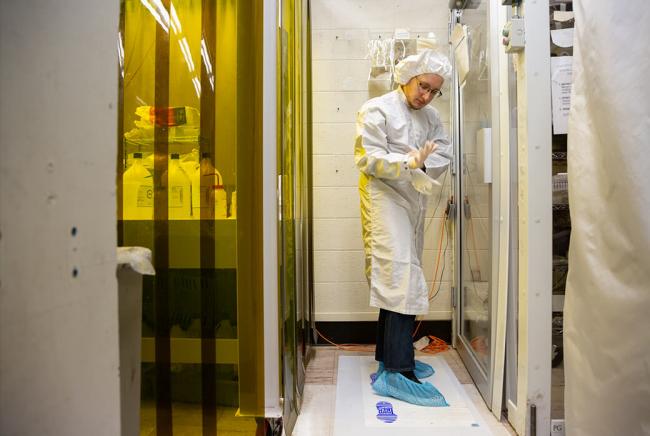
Astrophysical phenomena occur in environments of the cosmos radically different from those on Earth. However, laboratory work can provide important data on the behavior of matter under the temperatures, densities, radiation intensities, and other properties occurring elsewhere in the cosmos. Astrophysicists, astrochemists, and engineers at the Center for Astrophysics | Harvard & Smithsonian research how atoms, molecules, and other materials behave under exotic conditions, enabling observational astronomers to understand the properties of astronomical systems. At the same time, telescope data provide crucial information that can be applied in the lab. The resulting interactions have led to deep insights into the behavior of interstellar clouds, the atmospheres of stars and planets, and many other systems. This work has also assisted with the development of databases of atomic and molecular spectra.
Center for Astrophysics | Harvard & Smithsonian astrophysicists and astrochemists study a wide range of phenomena:
Stars form inside cold, dark clouds of gas and dust. Newborn stars blast their surroundings with intense radiation. Electrically charged particles stream from the Sun and bombard the worlds of the Solar System. Matter swirls around black holes and neutron stars, heating to extreme temperatures and emitting copious amounts of radio and X-ray light. All these systems — and many more — involve conditions very different from what we experience on Earth.
Laboratory astrophysics uses experimental and theoretical methods to study certain crucial aspects of astronomical environments to understand how matter behaves under extremes of temperature, radiation, magnetic fields, and other properties.
The Center for Astrophysics is home to a number of astrophysics and astrochemistry projects:

Drew Ames dresses in the super-clean laboratory clothing necessary to perform experiments in Suzanne Romaine's lab at the Center for Astrophysics | Harvard & Smithsonian.